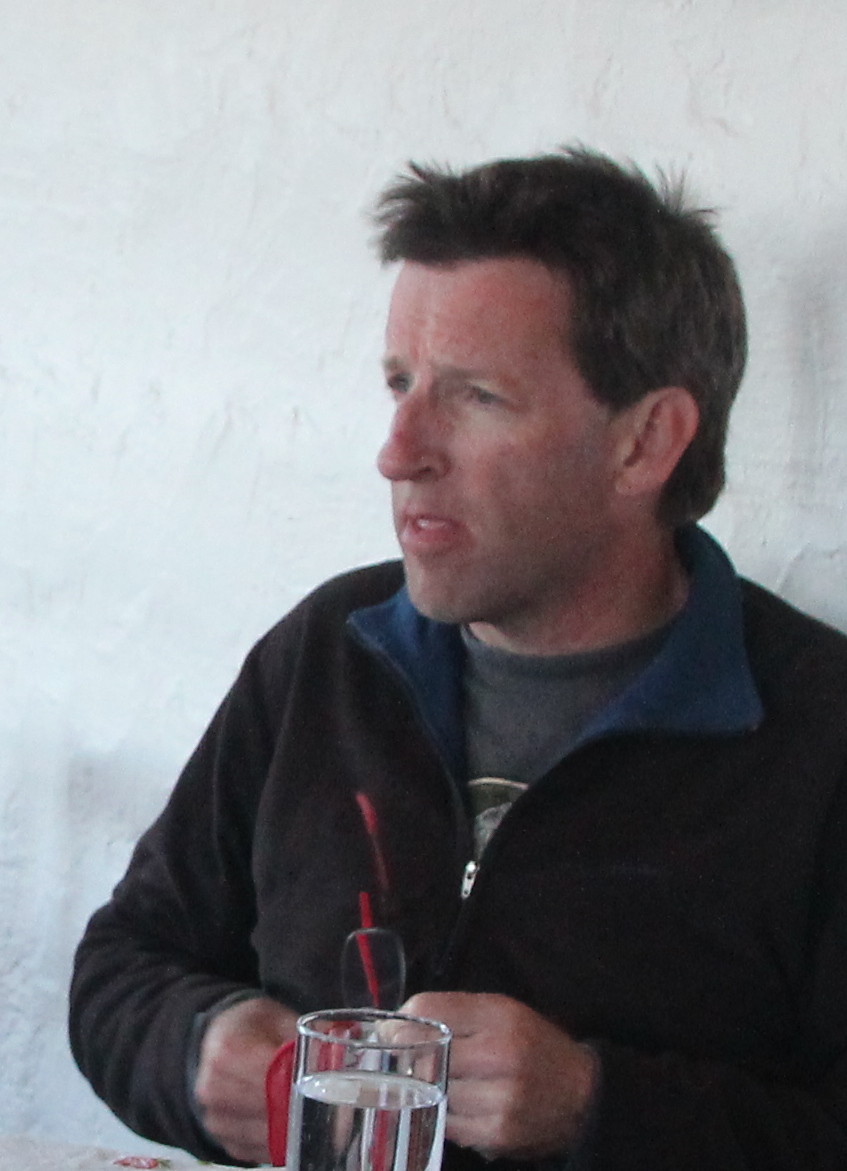When I was a kid normal was both a state of being and a place. The place was easier to define. It was a town, for one thing, and it could be found on one of those folded (paper!) highway maps that could be acquired at gas stations: there it was, smack-dab in the middle of the great flatness of Illinois. Corn and soybeans, soybeans and corn; there wasn’t much else to see, it seemed, when my family drove south and west from the Chicago suburbs on some vacation or other, to Springfield or the Ozarks or, one warm spring break while alarms were sounding at the Three Mile Island nuclear plant, down the river all the way to New Orleans.
Normal, Illinois, forever paired with its larger partner city, Bloomington, both of them emblematic to me as the epitome of ordinariness. Like another briefly memorable interstate exit, the town of Hell, Michigan, it seemed to exist more as a joke that could help lift the boredom for a few minutes than as a real place.
In reality, of course, normal lay all around me, but just as the soft and humid air of the suburbs only occasionally carried a whiff of steel mills far to the south it was usually just part of the background, something so invisible, so taken for granted, that it could not only not be named but barely rated as something that could even have a name. Normal was the suburban ranch house, the cul-de-sac, the two-car garage, the trip with mom to the grocery store. It was baseball on the radio in the summer night, sprinklers whirring on the neighbors’ lawn. Normal was as simple as breathing, in and out, as reliable as winter bearing snow and August bearing another Cubs heartbreak.
I was thinking about normal just this morning as I rode the campus bus, which is the yes, normal way I often get to my office or classroom. It too is highly reliable and the furthest thing from flashy, except when the students get to decorate one of the buses with spiders and zombies for Halloween. But now, in chilly November, the bus was as stark as usual, perhaps a third full.
A call came over the radio, loud enough that everyone in the bus could hear. Anyone find a phone on their bus? a voice asked. Someone just reported they lost theirs.
Not me, our bus driver responded. But by the time we got to the next stop another driver had piped up: I have one! Someone turned it in.
Can you describe it? asked the dispatcher.
Sure, it has a cat on the case.
That’s it! Let me talk to her and ask her where she wants to meet you so she can pick it up.
I had a stressful day coming up; it is somewhat difficult, and honestly kind of embarrassing, to describe how this banal exchange lifted my spirits. I felt an almost overwhelming sense of rightness, a feeling that the system worked. Normal worked! Normal was good! Normal was strangers helping one another simply because that is what people do when a society is functioning smoothly. It was hardly worth noting—except when it is worth noting.
I got to my office with a few minutes to spare, which gave me just time enough to once more pull up the Arizona election results. No new news. Every day I’d been checking obsessively, clicking again and again to see whether the governor candidate who appeared to be an ordinary, competent politician and administrator was leading the candidate who was a flaming election denier. The secretary of state candidate who was even more of an election denier had already lost, though by an alarmingly small margin considering the stakes.
Even without the final results of the governor’s race the nationwide trend seemed clear: in this election, normal was the winner. Normal was the candidates who were able to persuade voters that they were not conspiracy theorists, or racing to take the country back into the 19th century. Normal was candidates whose names I had to double-check a few times because they simply hadn’t made that strong an impression.
I wrote a book recently that is all about how the historical moment we are living in is without precedent, how we are facing climate breakdown challenges that place us in a situation humans have never seen before. The book is partly about how climate used to be normal, in the fading-into-the-background sense of that word, and how now climate is anything but normal, but even so many are unable to conceive of this disruption. And so they look for excuses for inaction.
For many, though, especially among the young, it’s clear that normal has up and gone. Normal is over, at least when it comes to the climate. We won’t see it again, not in the lifetime of anyone alive today.
No wonder, then, that when normal shows itself even in banal ways it brings a palpable sense of relief. After all the shouting, after all the ever-increased tension of the big story we have all been living with its ever-increasing volume, it comes almost as a shock, and certainly as a relief, that we can find the ordinary still among us. Maybe that’s what’s becoming of the vaunted American optimism that I always think of as being so thoroughly on display in those midwestern towns with their farmhouses and hyper-productive fields: maybe, from a belief in eternal growth, we can instead find it sufficient that little bits of normal can still show up here and there.

